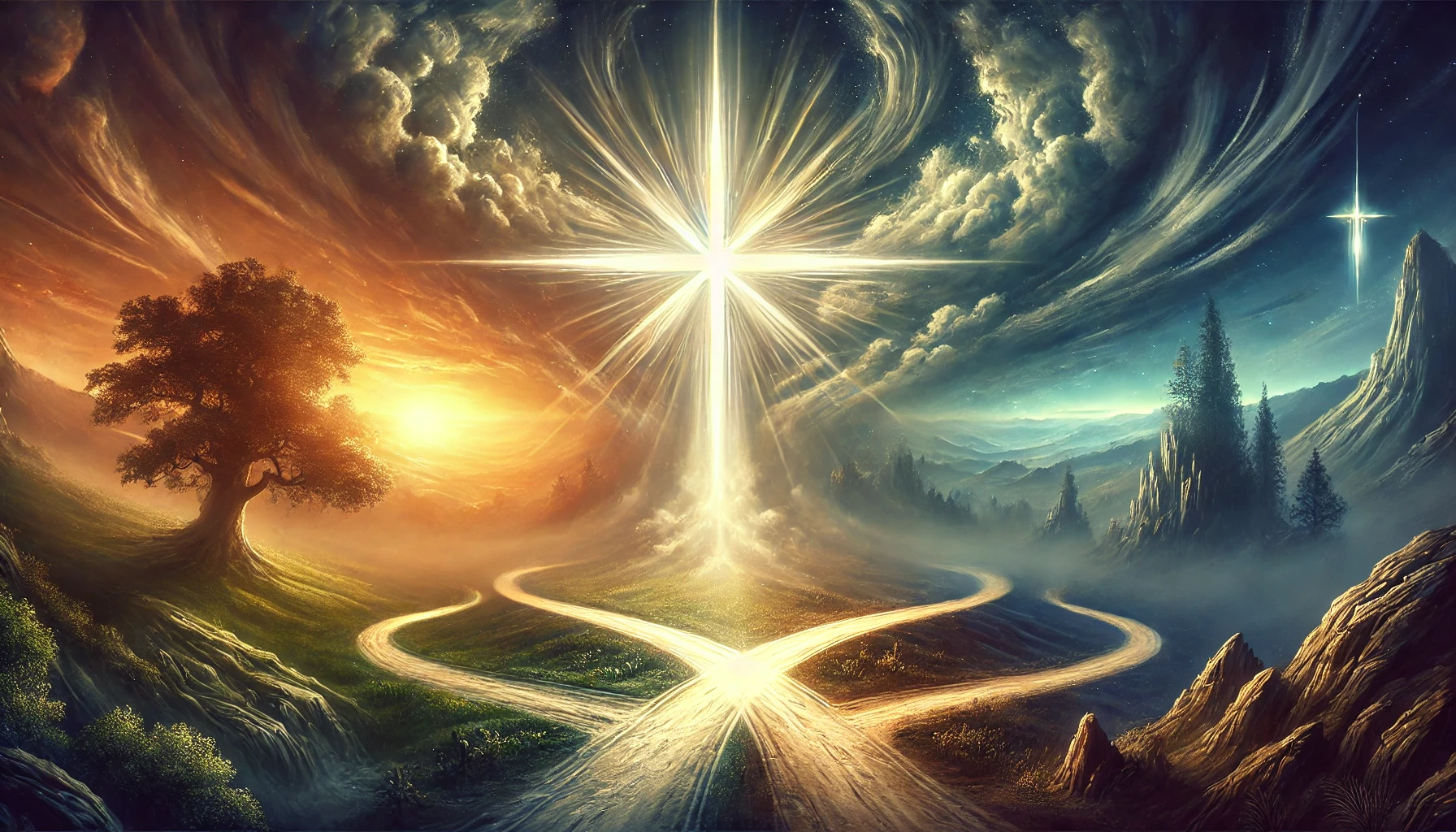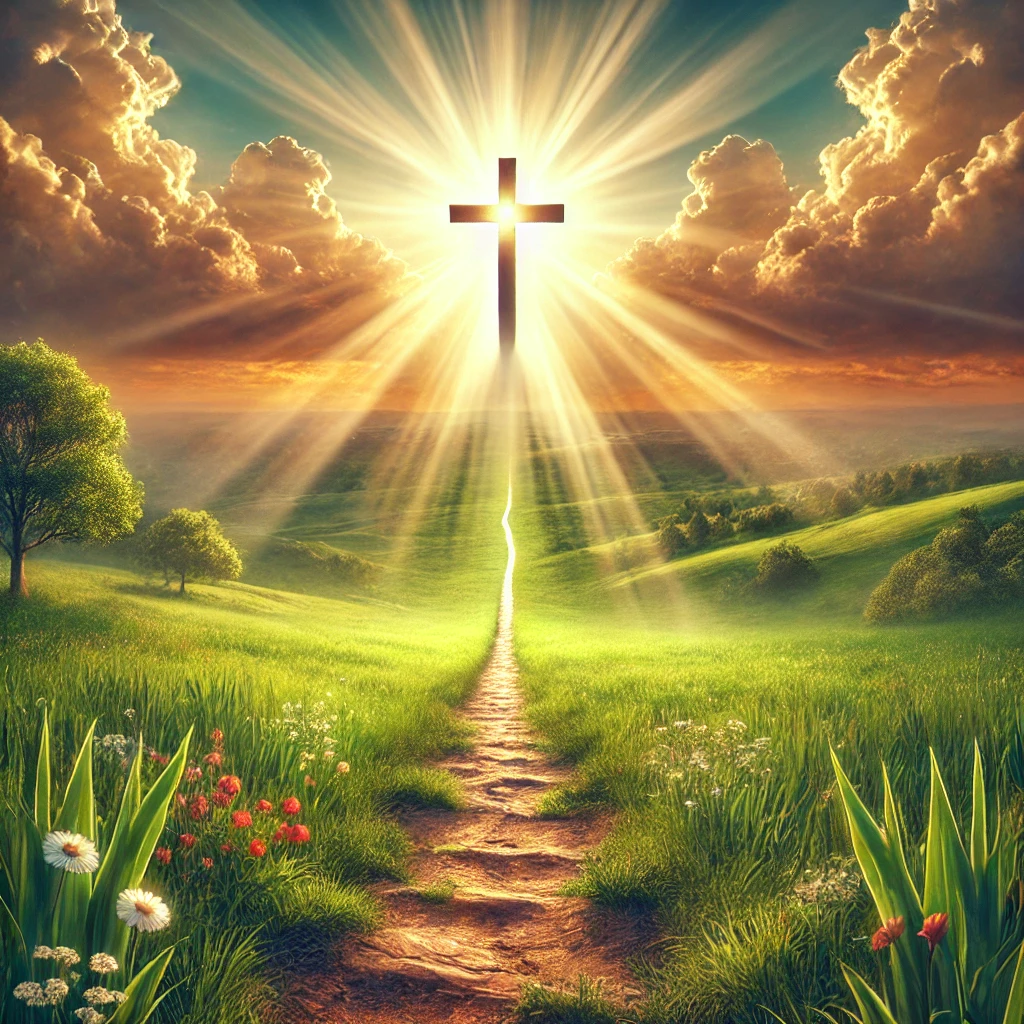 One day, the Seeker, a young soul on a journey of self-discovery, arrived at the Master’s dwelling. The Master was known for bridging wisdom from different spiritual traditions. The Seeker, filled with questions and uncertainties, was deeply curious about the relationship between the Christian path, in which he was raised, and the Tao, which had recently touched his heart.
One day, the Seeker, a young soul on a journey of self-discovery, arrived at the Master’s dwelling. The Master was known for bridging wisdom from different spiritual traditions. The Seeker, filled with questions and uncertainties, was deeply curious about the relationship between the Christian path, in which he was raised, and the Tao, which had recently touched his heart.
Seeker: Master, I’ve come with a question about the connection between the Christian path and the Tao. They seem like two entirely different worlds to me.
Master: Tell me, Seeker, what do you mean by the "Christian path"?
Seeker: To me, the Christian path is the way to God, shown through the example of Jesus: a way of love, humility, and self-sacrifice.
Master: And what do you mean by the Tao?
Seeker: The Tao, as I understand it, is the natural flow of life, the order of the universe where harmony is found through Wu Wei—actionless action.
Master: Interesting that you describe both in terms of a path and harmony. Consider this: the Christian path is often called "the way of life" (as Jesus said, “I am the way, the truth, and the life”), while the Tao literally means “the Way.” Could they not be different expressions of the same journey?
Seeker: But Christianity focuses on a personal, loving God, while the Tao is impersonal. How can these two be reconciled?
Master: Look at it this way: Christianity sees God as the source of love. In Jesus’ teachings, love is about self-surrender and unity with others. The Tao speaks of the same unity but does not name it. It’s not the words that matter but the experience. The Tao says, “Those who speak do not know; those who know do not speak.” Similarly, Christian mystics like Meister Eckhart have said that God’s truth cannot be captured in words.
Seeker: So, are you saying love and the Tao are the same?
Master: Love is an expression of the Tao, if you will. Think of water: in Christianity, love is like water that washes and nourishes souls. The Tao describes the same water that flows downward, finding the lowest place and giving life to all. The forms differ, but the principle is the same.
Seeker: Then what does actionless action mean on the Christian path?
 Master: Wu Wei, or “actionless action,” is not about doing nothing. It’s about every action being in harmony with the natural flow. Consider Jesus’ words: “Do not worry about tomorrow, for tomorrow will worry about itself.” Isn’t this trust and surrender the same peace described in the Tao?
Master: Wu Wei, or “actionless action,” is not about doing nothing. It’s about every action being in harmony with the natural flow. Consider Jesus’ words: “Do not worry about tomorrow, for tomorrow will worry about itself.” Isn’t this trust and surrender the same peace described in the Tao?
Seeker: So, you’re saying Jesus’ teachings and the Tao are aligned?
Master: You don’t have to choose between them. Both show how to live in harmony with Life itself. Jesus leads you to the “Father,” the Tao guides you to the “Way,” but both arrive at the same source.
Seeker: This is comforting, Master. How can I live this connection in my daily life?
Master: Practice the simplicity and naturalness of the Tao in the spirit of Christian love. Be like water, nourishing without demanding. And remember: the Tao, God, and Love are all the same fundamental reality already within you.
The Seeker sat in silence, deeply reflecting on the Master’s words. For a moment, it seemed .as though all contradictions dissolved, leaving only the simple truth: the Way is everywhere.
